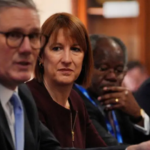In a new recommendation, the U.S. Centers for Disease Control and Prevention (CDC) has advised seniors and immunocompromised individuals to receive two COVID-19 vaccine shots this respiratory virus season. This guidance, announced by the CDC’s vaccine advisory group, suggests that these groups should get vaccinated six months apart to enhance their protection against the virus.
The recommendation comes in response to a recent surge in COVID-19 cases that resulted in increased hospitalizations among vulnerable populations. Although current rates of infection are low, health experts express concerns about a potential rise during the upcoming holiday season, when gatherings and travel typically increase. Additionally, immunocompromised individuals, such as those with cancer, may be eligible for three or more doses based on their specific health conditions and exposure risks.
Dr. Yvonne Maldonado, a professor at Stanford University and a member of the CDC advisory committee, emphasized the importance of focusing on the most vulnerable populations. “Seventy percent of hospitalizations for COVID-19 in the U.S. are among those aged 65 and older, with 50% occurring in individuals aged 75 and older,” she explained. By targeting vaccinations in these groups, experts believe they can significantly reduce hospitalization risks.
The CDC’s updated guidance is also based on data indicating that immunity from the vaccines wanes after four to six months. Dr. Maldonado noted that administering a second dose can help maintain protection against COVID-19 throughout the year, especially during seasonal peaks of the virus.
Regarding the effectiveness of the vaccines, Dr. Steven Furr, board chair of the American Academy of Family Physicians, affirmed that current mRNA vaccines from Moderna and Pfizer-BioNTech are designed to protect against the Omicron subvariants, including KP.2 and JN.1. “The vaccine decreases hospitalizations and the risk of death,” he stated, reinforcing that while vaccinated individuals may still contract COVID-19, their chances of experiencing severe illness are significantly lower.
Despite the pressing need for vaccinations, supply issues persist. Dr. Furr highlighted challenges in obtaining sufficient doses for his practice in Jackson, Alabama. “We ordered 100 doses weeks ago, but they’ve trickled in slowly,” he explained. He urged for increased supply to ensure family physicians can effectively provide the vaccine to their patients, who may be more inclined to receive it during routine visits.
The CDC continues to stress the importance of vaccinations in reducing severe illness and hospitalizations. CDC Director Dr. Mandy Cohen stated, “Allowing for additional COVID-19 vaccine doses enables individuals to make informed decisions to protect themselves and their loved ones.”
As the new mRNA vaccines target emerging variants, public health officials are preparing for potential increases in infections. The CDC encourages eligible individuals to stay informed about vaccination opportunities to ensure continued protection against COVID-19.









